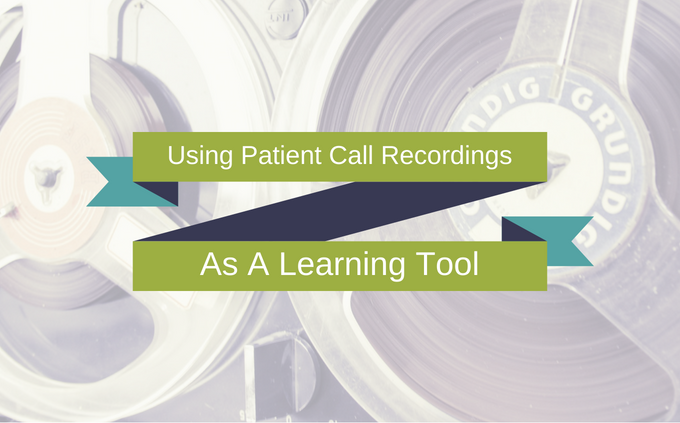I’ve listened to lots of recorded phone calls with offices over the years. I can hear myself in those calls when I worked in my first dental practice. I had no idea what to say. I didn’t even really understand insurance at the time. My only experience was when I had some fillings done and there was a remaining balance I never paid.
As I learned more about how insurance worked, my conversations changed. But not in a good way – ignorance really is bliss, as they say. I once heard a consultant say that the worse person to have answering the phones in the office was the insurance coordinator. The more I knew, the longer my conversations got.
When you don’t have systems in place and your team doesn’t understand how the various types of dental plans work, it will result in billing issues and upset patients. Everyone needs to know the software, know the insurance and know what to say (and what not to say) to patients.
So over the years of learning how not to do it, here are some tips:
- Record phone calls as a learning tool. Either use a marketing company that will do this for you, or contact your IT services for suggestions on a service that would work. This idea will sound invasive at first, but it’s a training tool. If you hire a consultant or pay for online training for your team, how will you know if the training is working? How will you measure improvement other than pulling reports and looking at only a few metrics?
- Focus on the patient. They know when you are distracted and when you are not paying attention. You will hear it in recordings whether or not you realize it. Have an intake form so when a patient calls, especially for new patient, you have a plan. You want the conversation to be centered around why they are calling, not just the insurance! Ask questions – find out why they are calling? “That tooth must really be bothering you at this point… why don’t we get you in as soon as possible…. How about tomorrow?”
- Even the most seasoned employee can have a habit of concentrating on the wrong part of the conversation. What happens is we have a bad experience or we are afraid to follow a script. We are reluctant to make the same mistake. For example, a patient misunderstood what we said on the phone and had an issue with their bill. In order to prevent that from happening again, we make sure that we cover the insurance part first and make sure it is very clear to the patient.
- Get trained! There are so many great resources out there. I’ve written entire articles on the importance of training and investing into advancing skills, brushing up on equipment, products and practice management software you use every day. This is not different!
Bridget Fay, BBA, FAADOM
